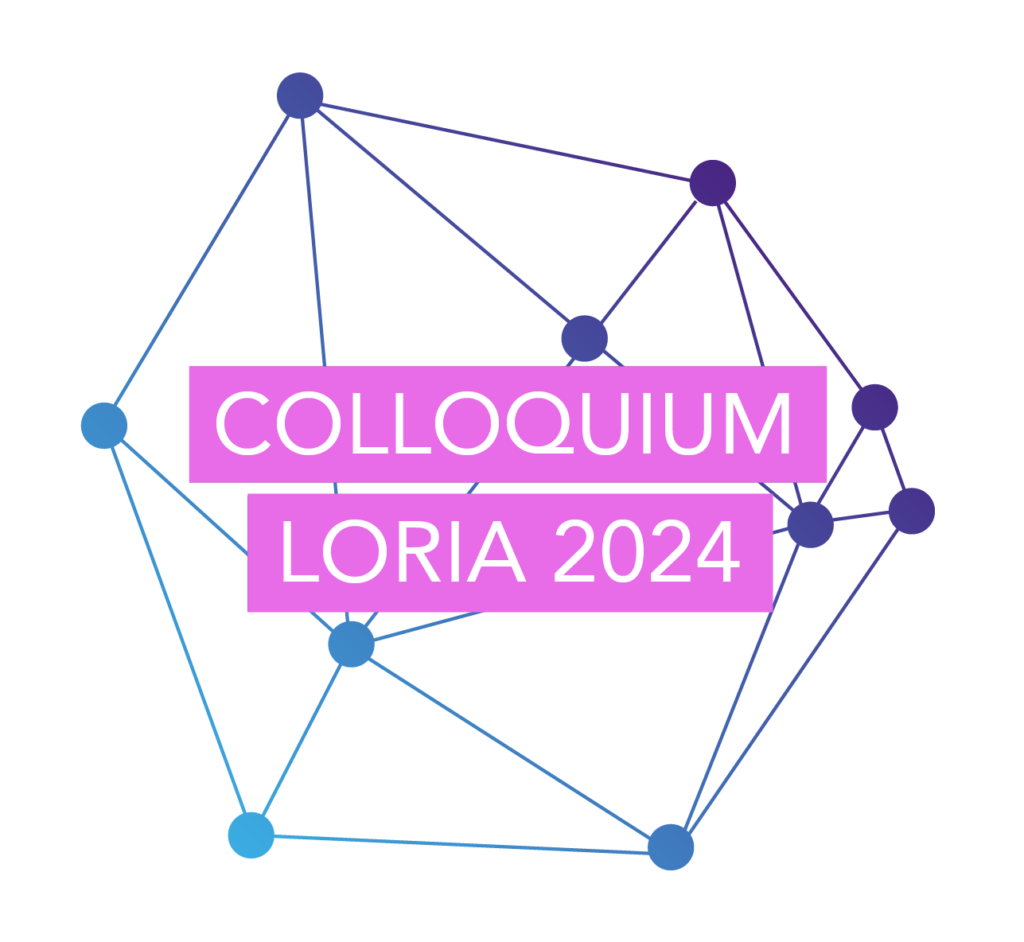CyberBioHealth (CBH)
DEFINITION
The CyberBioHealth (CBH) transversal axis brings together scientists, engineers, and students from several LORIA teams whose research concerns applications in biology and health.
TEAMS AND RESEARCH TOPICS
The topics addressed in the CBH axis are quite varied. Two main research fields can be distinguished:
- Research on available data (“Data-Driven”),
- Research involving processing signals from any kind of device (“Devices”).
Table1: The teams involved in the CBH axis (January 2016)
| “Data-Driven”
Exploitation of biological and biomedical data: Facts, text, images, graphs, knowledge, usages, semantic web, etc.
|
ABC (D1) | Multi-class SVM machine learning |
| ADAGIO (D3) | Discrete algorithms applied to biological images and sequences | |
| CAPSID (D5) | Algorithms for the 3D modelling of macromolecular complexes | |
| KIWI (D5) | User modelling for web recommendation systems | |
| ORPAILLEUR (D4) | Knowledge representation and discovery from biological and biomedical data | |
| QGAR (D4) | Enrichment of document and image descriptors for biological or biomedical applications | |
| “Devices”
Research relating to devices associated with living systems (often in connection to human): Robotics, sensors, signals, human machine interface, etc. |
BISCUIT (D5) | Bio-inspired neural networks for human-like robots |
| LARSEN (D5) | Sensors and robots for telemedecine | |
| MAGRIT (D3) | Augmented reality in medical imaging | |
| MULTISPEECH (D4) | Automated speech recognition and analysis of speech disorders | |
| NEUROSYS (D5) | EEG and brain signal processing for better understanding of anaesthesia and epilepsy. | |
| VERIDIS (D1) | Model checking for the safety of medical devices such as pacemakers |
SCIENTIFIC ANIMATION
The CBH transversal axis participates in the organization of interdisciplinary scientific events in the frame of the Fédération Charles Hermite (http://www.fr-hermite.univ-lorraine.fr/content/agenda).
The CBH also organizes seminars and workshops.
NATIONAL AND INTERNATIONAL COLLABORATIONS
Stanford School of Medecine : associated team with Orpailleur (contact : Adrien Coulet, lien vers la page de l’équipe associée : http://snowflake.loria.fr/)
Orphanet : common projects with Orpailleur (contact : Chedy Raïssi)
State University of Maringa, Brazil : in silico drug screening projects with Capsid (contact : Bernard Maigret)


